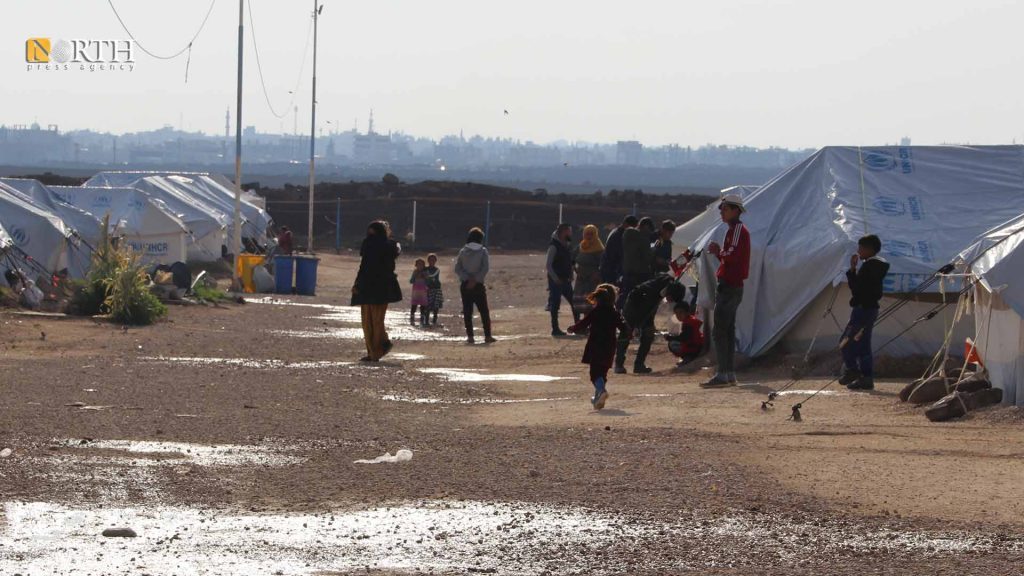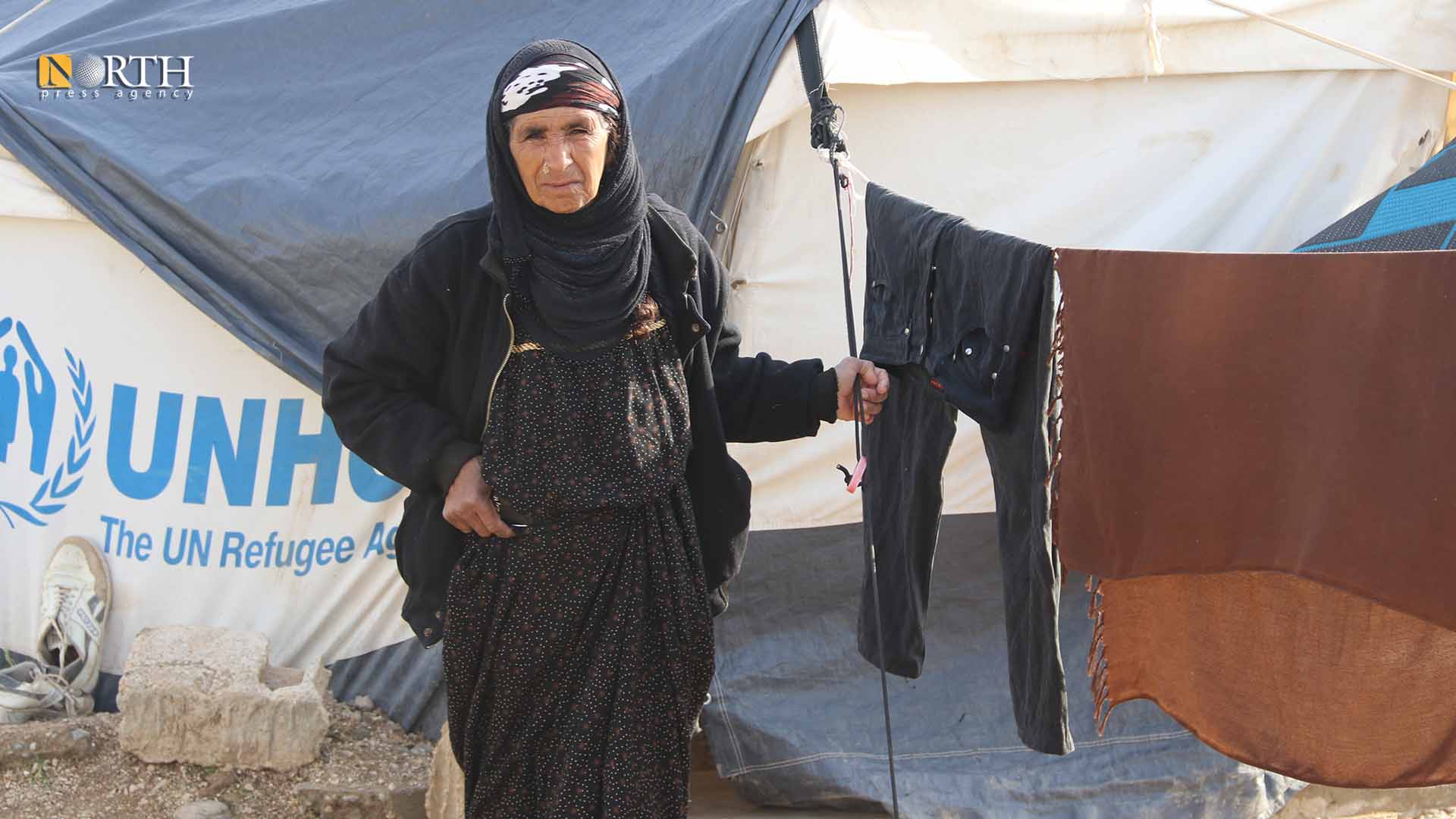DERIK, Syria (North Press) – Aysha Mahmoud, who fled the Turkish bombing of the town of Abu Rasin (Zargan) with her family three months ago, lives in hastily erected tents in Newroz camp in Derik countryside, northeastern Syria.
As Turkey continues its aggression on Hasakah countryside, more people will displace, camps will be expanded, more tents, that lack the basic services, will be erected to accommodate the new arrivals.
Mahmoud hails from the village of Dardara in the countryside of Abu Rasin, north of Hasakah.
She said the new section that accommodates her with her husband and nine children “lacks the services and basic necessities of life available in other sections of the camp.”
“We receive limited aid, how can I manage the needs of my family of nine,” she said.
Fleeing the Turkish bombardment
Mahmoud held the organizations and camp management responsible for the lack of water, kitchens and bathrooms in the recently opened section.
The Turkish forces and Turkish-backed armed opposition factions invaded Sere Kaniye (Ras al-Ain) and Tel Abyad in late 2019 displacing up to 300,000, since then security chaos, infighting, and theft of civilian houses continues in Turkish occupied areas.
Newroz camp, which was reopened during the Turkish invasion on Sere Kaniye and Tel Abyad, includes 925 families, in total of 4,724 persons.

The camp was established in 2014 with the aim of sheltering families fleeing from Sinjar (Shingal)district, northern Iraq, after the Islamic State (ISIS) attacks.
Due to the frequent Turkish attacks on the countryside of Tel Tamr town, north of Hasakah, dozens of families have been displaced to the camp amid a lack of humanitarian aid distributed by organizations.
Nadim Omar, a relations official in the camp, said the influx of new displaced people continues due to the frequent Turkish bombing.
He told North Press that the NGOs operating in the camp do not provide sufficient support, and that the shortage includes food baskets and basic services.
The arrival of families in the days after preparing the food relief schedules leaves them deprived until they start distributing baskets for the following month.
Expansion plan
Omar pointed out that the new section contains 300 tents on a piece of land that is not suitable for winter housing, and without electricity, kitchens or bathrooms.
He added that the organization responsible for the services has not yet finished extending the electricity network and preparing the tent floor.
In front of the camp, families gather seeking shelter, some of whom hold official documents proving that they are residents of Abu Rasin and its countryside, but some of them have not yet been allowed to enter.
The camp management follows criteria to determine the most needy in coordination with the local councils in the areas that have been subjected to Turkish bombardment.
Omar pointed out that they cannot receive families without coordinating with the local councils and two coordination centers in both Darbasiyah and Hasakah.
The two centers are responsible for transporting the IDPs to Newroz camp if a decision is made to accommodate them here, to avoid families bearing the cost and hardships of the road.
The camp managemtn gets the approval to establish six new sections (units), according to Omar.
Whenever a little rain fell, water leaked into the tent in which Raw’a Abdurrahman lives with her husband and five children.
The floor becomes muddy, and the mattresses and covers get wet.
A few months ago, the woman fled the Turkish bombing of her village, Dardara, in the countryside of Abu Rasin.
Her 7-year-old son suffers from asthma, and his condition worsens due to humidity and cold.
“We don’t even have enough mats and blankets,” the mother said.

